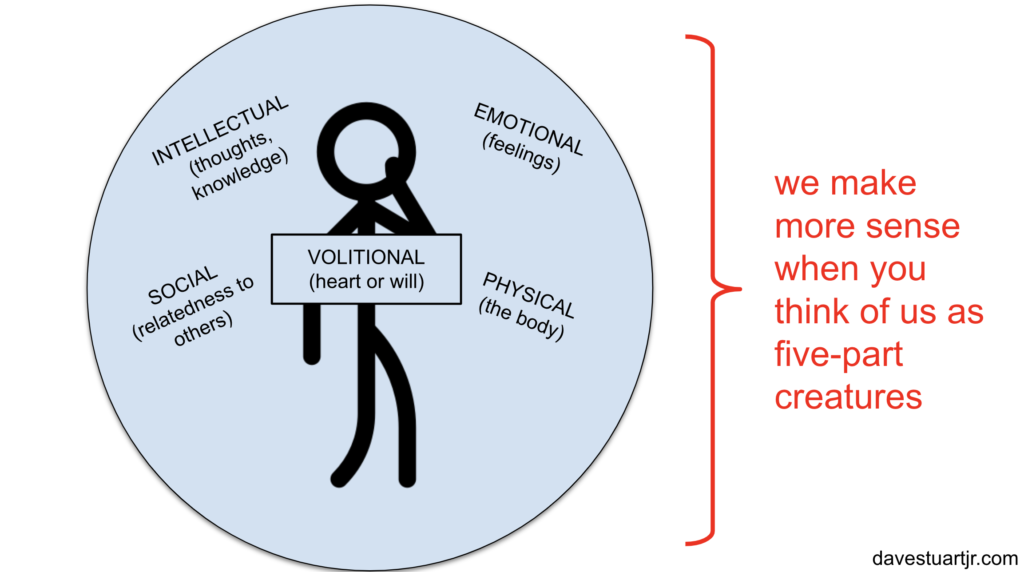The trick this year is the same as it's always been.
- The job, like many jobs, will at times be challenging.
- Our lives, like many lives, will at times feel overwhelming.
- Our to-do lists, like the to-do lists of many folks, will always whisper lies to us that we can actually finish them.
And so, what we've got to keep an eye on is not the next silver-bullet tantalizer that promises to make this stuff go away. Instead, we've got to apprentice ourselves to two broad areas of practice:
- Depressurization of self
- Simplification of workload
Depressurization of self requires a clear eye on what a self actually is. I'm pretty convinced that we're five-part creatures: physical, intellectual, emotional, relational, and volitional. Call it nerdy if you'd like; I call it complete.

There are certain actions that make these aspects of my self depressurize in times of stress, and there are those that make them pressurize.
- To depressurize your body, take a walk or go to bed.
- To depressurize your relationships, bring vulnerability in to a conversation or avoid negativity spew zones.
- To depressurize your mind, turn your phone off for twenty-four hours each weekend or read a book that's just for fun.
And so on.
The trouble, of course, is that some of the depressurization methods we use in times of stress work in the short-term but make things worse in the long-term. For example:
- When you're stressed at work and in life, it's easy to justify staying up late so that you can blow off steam; this feels good for a bit, but it makes waking up the next day more of a drag (and therefore more pressure-ridden).
- When work is frustrating, it's easy to fixate your mind (intellect) or your conversations with others (social) on all the things that are wrong; this can feel a little good (“I'm justified in this!”) in the moment, but in the long-term it just situates our psyche on the stuff that's hard.
So, that's depressurization of self.
And then simplification of workload is the other disciplinary area that must be mastered to live a flourishing life as an adult in the twenty-first century. If you're smart and aware of your surroundings, there will always be too much to do. And so you must become more than smart; you must become wise. A great petri dish for wisdom's growth is in the simplification of tasks. This can begin as easily as looking at a too-much-to-do list and saying, “What would this be like if it were simple?“
Both are part of the journey this year, friend. And all the years after. We won't regret time contemplating, practicing, and playing in these two sandboxes.
Best,
DSJR
Leave a Reply